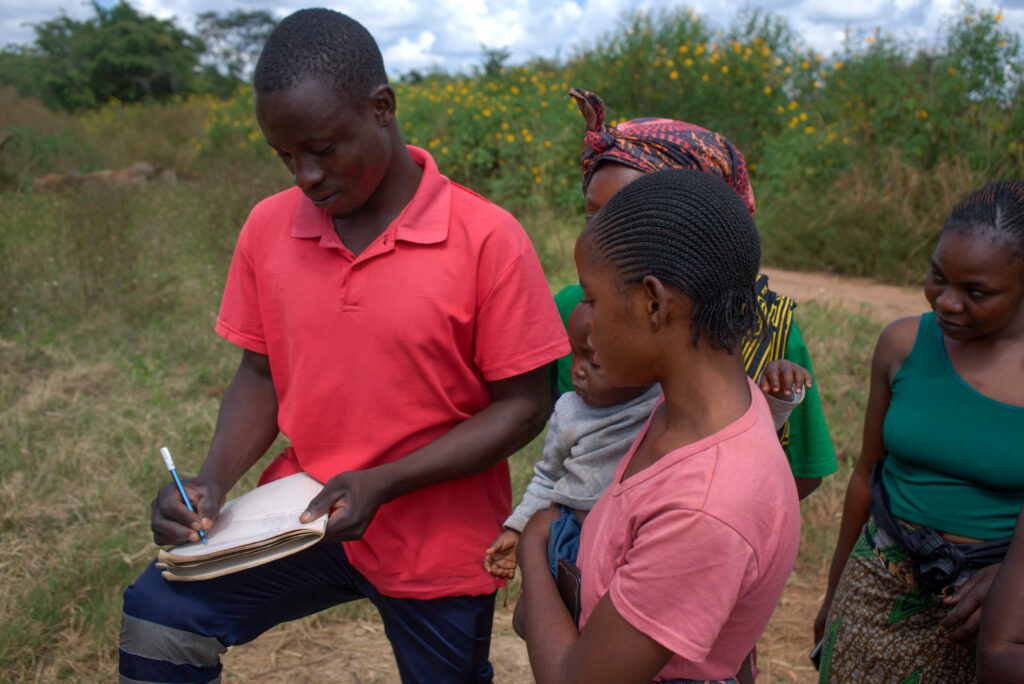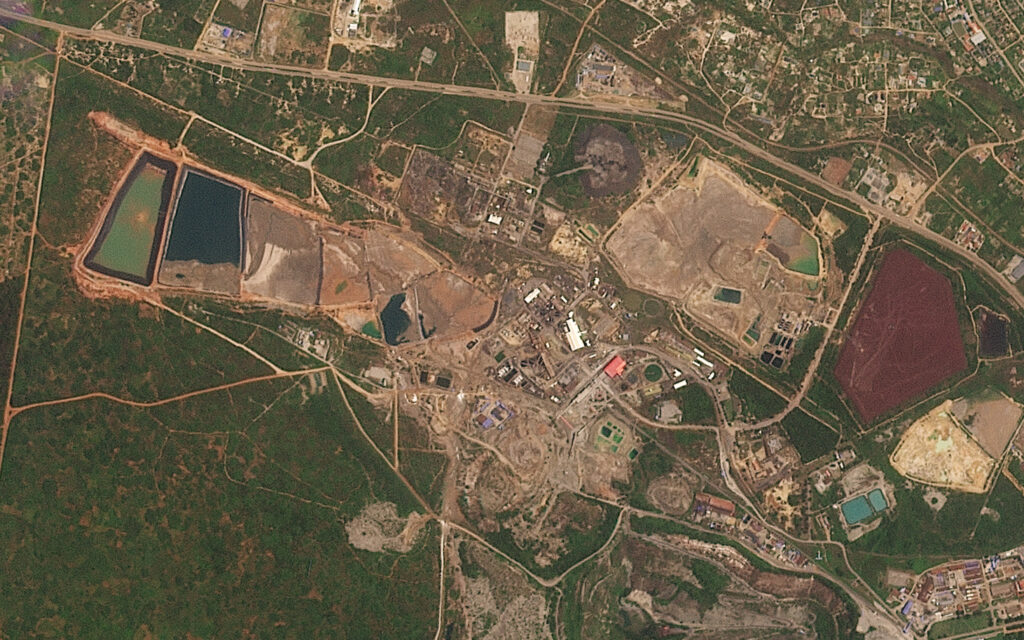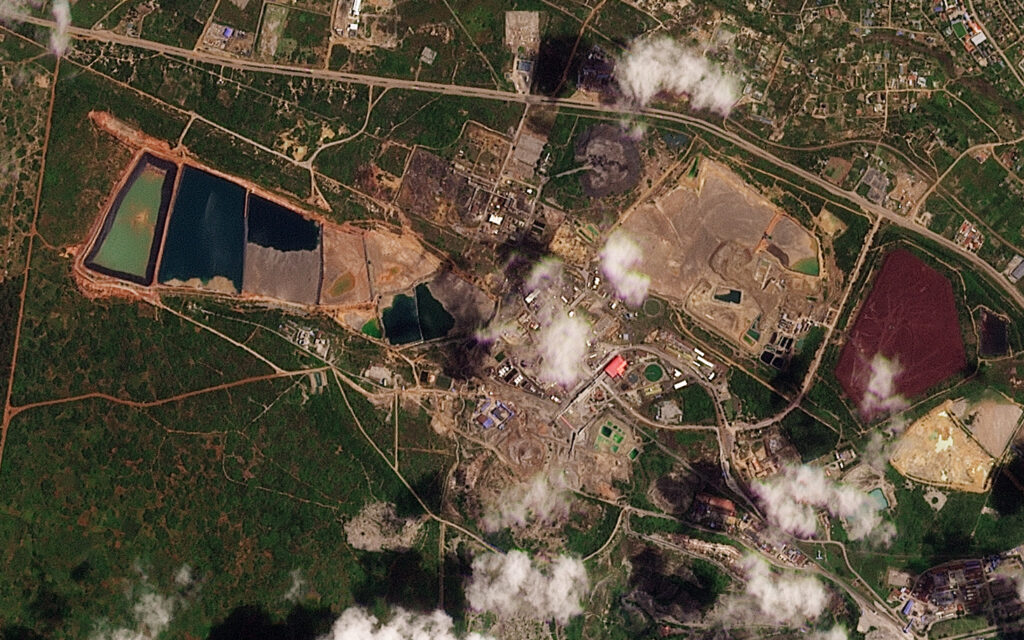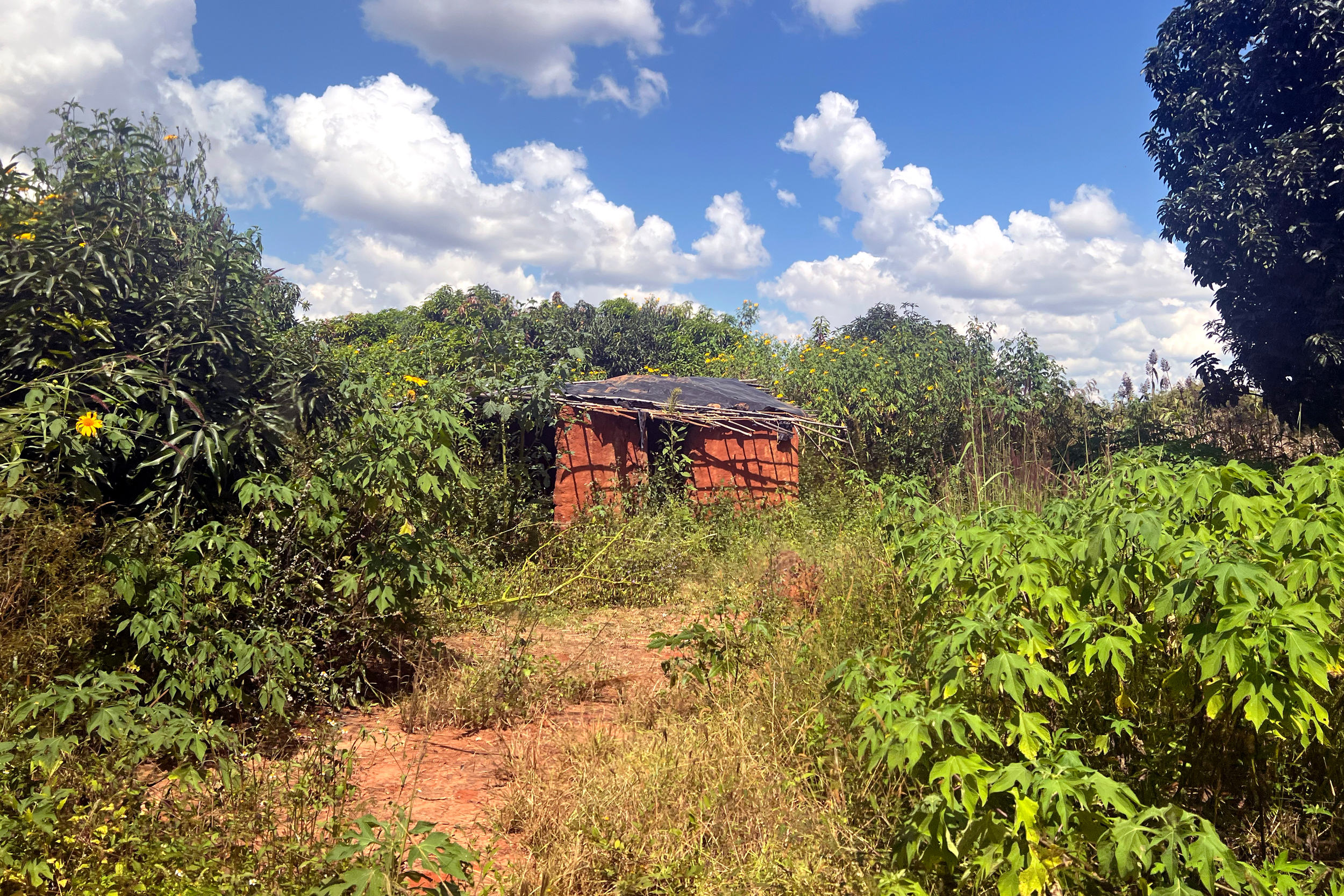Chinese Mining Firm Downplays Toxic Waste Spill as Residents Reel From Impacts
September 22, 2025
Planet China: Eighth in a series about how Beijing’s trillion-dollar development plan is reshaping the globe—and the natural world.
A Chinese mining company is denying that its toxic waste spill, one of this year’s worst environmental disasters, had a “significant impact” on the environment or local communities.
In a statement filed Thursday with the Hong Kong Stock Exchange, China Nonferrous Mining Corp. said the February collapse of its waste pit, known as a tailings dam, at a copper mine in Zambia resulted in only “partial tailings leakage.”
Video of the spill, lasting a half day and releasing millions of gallons of waste, shows gushing brown sludge rushing into the countryside. The highly acidic waste full of heavy metals surged into rivers and streams, killing aquatic life and leaving behind a layer of bloated, dead fish.
Get Inside Clean Energy
Today’s Climate
Tuesdays
A once-a-week digest of the most pressing climate-related news, written by Kiley Price and released every Tuesday.
Get Today’s Climate
Breaking News
Don’t miss a beat. Get a daily email of our original, groundbreaking stories written by our national network of award-winning reporters.
Get Breaking News
ICN Sunday Morning
Go behind the scenes with executive editor Vernon Loeb and ICN reporters as they discuss one of the week’s top stories.
Get ICN Sunday Morning
Justice & Health
A digest of stories on the inequalities that worsen the impacts of climate change on vulnerable communities.
Get Justice & Health
Since the spill, residents living below the mine have not been able to safely use the groundwater they rely on for drinking, bathing, cooking and farming. Some locals have also reported illnesses, including skin rashes, blood in urine, chest tightness, nose bleeds and blurred eyesight, after exposure to the waste.
A new lawsuit filed on behalf of residents alleges the company has gone to extensive lengths to prevent them from reporting their experiences and getting help. The complaint alleges the company has threatened locals by claiming it is using drones to monitor them and that their phones have been tapped.
China Nonferrous Mining is a Chinese state-owned mining company and one of the flagship firms operating globally as part of China’s sweeping Belt and Road Initiative, a trillion-dollar program investing in mines, ports, pipelines and other energy and infrastructure projects in mostly poor countries. China Nonferrous Mining’s subsidiary, Sino-Metals Leach Zambia, operates the copper mine where the February tailings dam collapse took place.
The statement also blamed the waste pit’s collapse on “theft and damage” to the pit’s liner and heavy rain, though the Engineering Institution of Zambia, a professional regulatory body, alleged the tailings dam had operational and design flaws. The group said it was investigating the accident.
China’s Foreign Ministry also weighed in on the spill last week.
“The companies concerned actively stepped up to their responsibilities,” said spokesperson Lin Jian. “We have and will continue to request Chinese companies overseas to abide by local laws and regulations in their operation, pay special attention to their corporate responsibilities and strictly protect the environment.”

Both the Foreign Ministry and China Nonferrous Mining pointed to statements made by Zambian officials at an Aug. 7 press conference claiming that pH levels had normalized in impacted waterways, “concentrations of heavy metals are steadily decreasing,” and “the immediate danger to human, animal and plant life has been averted.”
The statements conflict with two assessments, including the results of an earlier, independent study of the waste carried out on behalf of the Finnish embassy that found high levels of 16 heavy metals, including lead, arsenic and uranium.
The other assessment was by Sino-Metals’ own consultant and later leaked to the press. The consultant, a South African firm whose clients include oil majors and other large mining firms, warned of “extremely hazardous substances” in affected land and riverbanks that put downstream communities “at serious risk of developing birth defects, cancers, liver and lung disease, heart conditions, and other chronic illnesses.” The consultant also said the spill involved 30 times the amount of waste the company previously reported.
Sino-Metals then fired the consultant, alleging a contractual dispute.


China Nonferrous Mining’s statement filed with the Hong Kong Stock Exchange pointed to other statements from Zambian government officials, which the company characterized as praising Sino-Metals.
“The Vice President delivered a speech commending SML for its timely response and environmental management achievements,” the statement said, adding: “The Zambian government stated that … no major health issues or outbreaks directly related to this pollution incident had been found.”
In June, the Zambian government announced that Sino-Metals did not follow a government order to provide an assessment of its pollution, a first step for assessing damages and remediation. Since then, Zambia has taken over that process, which is not yet complete.
Zambian civil society groups have fiercely criticized the spill response of both Sino-Metals and the Zambian government, saying both have downplayed the disaster and have been slow to react and that Sino-Metals has wrongly tried to cast the issue as being inflamed by the U.S. government for political reasons.
On Aug. 6, the U.S. embassy in Lusaka issued a warning to U.S. citizens not to travel to areas impacted by the spill and said it had moved personnel out due to health threats from contaminated water and soil.
“No Other Option”
A lawsuit filed on behalf of affected residents in September accuses Sino-Metals of blocking lawyers and advocates from visiting impacted people and of causing extensive personal injuries, financial loss and property damage.
“Families and children have continued to live in the same area” with heavy metal contamination exceeding safe levels set by the World Health Organization and the Food and Agriculture Organization of the United Nations, the complaint said.
“They have continued to drink and use water from shallow wells and boreholes,” the complaint said, and “have no other option but to continue eating the contaminated crops.”

The lawsuit seeks immediate payment of $200 million as an emergency fund and $80 billion for a government-managed reparation and remediation fund.
China Nonferrous Mining’s statement filed with the Hong Kong Stock Exchange called the lawsuit “unfounded” and said the spill hasn’t had a significant financial impact on the company.
A second group of plaintiffs, in a notice of intent to sue, demanded that Sino-Metals pay $220 million and establish a $10 billion long-term fund. That lawsuit is expected to be filed this week.
In other tailings dam collapse cases around the globe, damages and remediation costs have run into the tens of billions of dollars.
Tailings dams store extremely toxic and acidic waste, including heavy metals that can damage health in a variety of ways. Because of this, leading industry standards require tailings dams to be built to last 10,000 years. Heavy metals do not naturally disintegrate and must be physically removed and stored.

The filed lawsuit alleges that since late July, some operations to physically remove waste from impacted areas “are being conducted without any protective measures, such as masks,” for residents living within 330 feet of the operations.
“Ongoing operations are generating untold dust, leading to the inhalation of hazardous and carcinogenic substances — including arsenic, cyanide, uranium, and other heavy metals,” the complaint said, citing expert testimony.
Residents, the complaint said, are already “experiencing significant health issues.” Those include respiratory problems, stomach pain, diarrhea, rashes, eye irritation and, the lawsuit added, “even coughing blood.”
This story is funded by readers like you.
Our nonprofit newsroom provides award-winning climate coverage free of charge and advertising. We rely on donations from readers like you to keep going. Please donate now to support our work.
Residents Allege Threats and Surveillance in Lawsuit
In September, Sino-Metals began making interim compensation payments to some residents, with some payments ranging from about $150 to $850, according to the pending lawsuit, which called the payments “grossly inadequate.”
The lawsuit claims that while the government identified 449 farmers as “affected,” the true number of impacted Zambians is far higher. The complaint cites a government statement that the affected waterways support “approximately 300,000 households that rely on fisheries-based livelihoods.”
“No assistance is being given or promised for the approximately 300,000 households that have lost their source of food and livelihoods and are living with uncertainty and fear,” the complaint said.

Sino-Metals required recipients of the government-ordered compensation payments to sign legal agreements releasing the company from all liability for harms caused by the spill, according to the complaint and previously reported by Inside Climate News.
The company, the complaint said, “has been detaining and arresting” activists and other civil-society representatives who have visited impacted residents, many of whom have “low levels of formal education” and who weren’t given access to legal counsel before being told they had to sign the legal releases in order to receive the minimal compensation payments.
Sino-Metals, the complaint said, “has threatened and warned the community that their phones have been tapped, that the Zambia Information and Communication Technology Authority (ZICTA) is recording all their conversations, and that if they make or receive calls, they will face severe, undisclosed consequences.”
The company has also warned residents that it “flies drones above the community, so it knows who visits who and who visits them,” the complaint alleged.
Residents fear for their health, livelihoods and environment, the complaint said.
“Many are so troubled that they struggle to sleep, as their means of survival have been obliterated without any support,” it added. “They fear that, due to their severely compromised health and the loss of their income, they will be unable to afford the inevitable medical bills that lie ahead.”
Earlier this month, Zambia’s vice president said the country may order Sino-Metals to pay out additional compensation, depending on the outcome of the pollution assessment.
China Nonferrous Mining’s statement filed with the stock exchange said Sino-Metals “has fully fulfilled its restoration and remediation obligations.”
About This Story
Perhaps you noticed: This story, like all the news we publish, is free to read. That’s because Inside Climate News is a 501c3 nonprofit organization. We do not charge a subscription fee, lock our news behind a paywall, or clutter our website with ads. We make our news on climate and the environment freely available to you and anyone who wants it.
That’s not all. We also share our news for free with scores of other media organizations around the country. Many of them can’t afford to do environmental journalism of their own. We’ve built bureaus from coast to coast to report local stories, collaborate with local newsrooms and co-publish articles so that this vital work is shared as widely as possible.
Two of us launched ICN in 2007. Six years later we earned a Pulitzer Prize for National Reporting, and now we run the oldest and largest dedicated climate newsroom in the nation. We tell the story in all its complexity. We hold polluters accountable. We expose environmental injustice. We debunk misinformation. We scrutinize solutions and inspire action.
Donations from readers like you fund every aspect of what we do. If you don’t already, will you support our ongoing work, our reporting on the biggest crisis facing our planet, and help us reach even more readers in more places?
Please take a moment to make a tax-deductible donation. Every one of them makes a difference.
Thank you,
Search
RECENT PRESS RELEASES
Related Post




